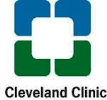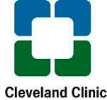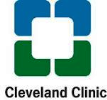Day 2 :
Keynote Forum
Pamela V O’Neal
University of Alabama in Huntsville, USA
Keynote: The Future of Palliative Care Practices
Time : 09:30 - 10:00

Biography:
Pamela V O'Neal, PhD, RN is Associate Professor of College of Nursing. She teaches the undergraduate and the doctor of nursing practice programs. She has a research focus in assessing suctioning processes to improve patient outcomes and is Co-Director of the Clear Project. She has experience in both laboratory and clinical research related to suctioning with newborns, adults, and older adults. She is Past-President of the North Alabama Chapter of the American Association of Critical Care Nurses, Chair of the Institutional Review Board for UAH, and was recognized as the Outstanding Faculty in the College of Nursing.
Abstract:
The population across the world is aging. In the United States there is projected to be more than 83.7 million people who are 65 and older in 2050, compared to 44.7 million who were 65 and older in 2013. The total population of the United States is 318.9 million, and the average life expectancy is 79 years. In comparison, China has a population of 1.4 billion, which is estimated to be 19% of the total world population. China’s life expectancy is on average 73 years. An aging population requires more health care services, and palliative care services are accessed by 65-79% of people before they die. rnrnThe global population is estimated to increase by 38% to 9.6 billion in 2050, and 1.5 billion people will be 65 and older. Aging of the population poses many challenges to policy makers and the healthcare industry. Palliative care and end of life issues will become more prominent on a global stage than it is today. Funding and resources are needed to promote growing developments and identify innovations in palliative care. Future palliative care practices and programs are dependent on funding and support. This session will discuss funding sources, research centers, and foundations that focus on supporting research in palliative care.rn
Keynote Forum
Kelly Cronin Komatz
University of Florida, USA
Keynote: Palliative care before birth – Perinatal hospice through the eyes of the family
Time : 10:00 - 10:30

Biography:
Kelly Cronin Komatz completed her medical education at Upstate Medical Center in 1988. She received her pediatric training at the OakKnoll Naval Hospital in Oakland California. She served as a general pediatrician in the United States Navy and was honorably discharged in 1996. She is board-certified in general pediatrics as well as hospice and palliative medicine. She is the Program Director for the University of Florida College of Medicine Jacksonville hospice/palliative medicine fellowship, and is Medical Director for the Bower Lyman Center for Medically Complex Children and the Community PedsCare Program of Community Hospice of Northeast Florida.
Abstract:
Development of new technology for pregnant woman has opened new experiences for families who embark on the journey of starting their families. Expectant parents receive more information about their unborn child then in years past. When that news includes congenital anomalies, complex cardiac anomalies and/or chromosomal anomalies, the journey to parenthood takes a sudden turn to unexpectancy. Referral to a perinatal hospice program is paramount in assisting the family through the rest of their journey. I will discuss the start-up of a perinatal hospice program, the key stakeholders who need to be involved, the on-going impact that is made by referrals to both the family as well as the medical team caring for the mother through her pregnancy and delivery and the transition of the unborn child. Case-based stories will be used to demonstrate the key components of the perinatal hospice program from the initial meeting with the family and development of an advance directive for the unborn child, to supporting the family and delivery room personnel during the labor, as well as the potential transition from the hospital to home with the newborn infant under hospice level of care. The roles of the interdisciplinary team members will be highlighted throughout the discussion. Symptom management and end-of-life anticipatory guidance will also be discussed.
- Palliative Care Services
Session Introduction
Susan B LeGrand
Cleveland Clinic, USA
Title: Palliative medicine fellowship: A study of resident choices
Time : 10:30 - 10:55

Biography:
Susan B LeGrand is a Medical Oncologist and Specialist in Palliative Medicine. She is in active practice of both fields. Her residency training was at the University of Texas, Houston and the University of Arizona Cancer Center. She has published numerous articles and spoke widely on palliative medicine topics.
Abstract:
Background: There is no data on the motives or characteristics of physicians choosing fellowship training in Hospice and Palliative Medicine (HPM). Methods: An electronic survey of HPM fellows initiating training in July 2009. Results: Seventy six physicians initiated the study with 62 (82% of responders) completing all questions. Fifty five percent were age 30-40 and 61% were female. Sixty eight percent were non-Hispanic Caucasian, 24% were Asian, and none were African American. Fifty five percent were internal medicine trained. Most (86%) asserted that the care of a dying, critically ill or symptomatic person impacted their decision to enter the field of HPM. Sixty three percent did not feel prepared to manage dying patients and 41% felt personal regret at the care they delivered. The major reasons for choosing the specialty were a desire to contribute to relief of suffering (79%), enhance end-of-life care (73%) and improve communication (78%). Ninety-five percent received negative comments about their career choice. Fifty nine percent had no exposure to hospice or palliative medicine in medical school whereas 61% had an exposure available during residency. Forty seven percent decided to enter fellowship in the 3rd year of residency and 33% applied after practicing in their primary specialty for a median of ten years. Accreditation, strength of education, and a hospital palliative medicine service were required by the majority for selection of a fellowship program.
Jeffrey P Harrison
University of North Florida, USA
Title: Hospice and palliative care: A partnership across the continuum of care
Time : 11:15 - 11:40

Biography:
Jeffrey P Harrison PhD, MBA, MHA is Chair of the Department of Public Health at the University of North Florida. He received his PhD in Health Services Research from VCU, his MBA from William and Mary and his MHA from the Medical College of Virginia. He is a Professor in Health Administration and teaches Strategic Planning. He has twenty-five years’ experience in health care and is an international speaker on a wide range of topics. He has published extensively in the areas of Strategic Planning, Change Management, and Healthcare Technology. He has authored thirty nine professional articles and three book chapters. In 2015, he completed the second edition of his book: “Essentials of Strategic Planning in Healthcare” published by Health Administration Press. He is a Certified Healthcare Executive and a Fellow in the American College of Healthcare Executives. He was selected one of the “Top 100 Health Administration Professors”, in 2013.
Abstract:
In the United States, the population aged 65 or older is projected to increase from 12.4% in 2000 to 19.6% in 2030, or from 35 million to 71 million people. Additionally, those aged 80 or older is expected to increase from 9.3 million in 2000 to 19.5 million in 2030. These growing elderly populations frequently have multiple chronic diseases and will participate in end-of life programs. Hospice and other palliative care providers have multidisciplinary teams working together to provide care. The goals of palliative care are to improve the quality of a seriously ill person’s life and to support that person and their family during and after treatment. Both believe informed patients and families should be encouraged to participate in their plan of care throughout their illness. Given recent changes in the healthcare model, both Hospice and Palliative Care have become a partnership across the Continuum of Care which includes hospitals, outpatient services, home health and post-acute care. This session will incorporate the latest research in Hospice and Palliative as we address the need for partnerships across the Continuum of Care. Specifically, we will discuss the prevalence of hospice and palliative care programs across the continuum of health services. The growth of these programs requires the creation of collaborative relationships between researchers, clinicians and healthcare leadership as process-focused care continues to develop. Our research will show how both facilitate innovation across the continuum of healthcare practice and are a cost effective approach to improving EOL healthcare quality.
Justin N Baker
St. Jude Children’s Research Hospital, USA
Title: Cancer is stressful, but life is too: Integrating palliative care into the ongoing care of adolescent & young adult oncology patients
Time : 11:40 - 12:05
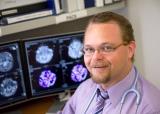
Biography:
Justin N Baker is a pediatric oncologist, palliative care physician, member of the ethics committee and Phase I and end-of-life care clinical investigator at St. Jude Children’s Research Hospital. He currently serves as the Chief of the Division of Quality of Life and Palliative Care at St. Jude as well as the Medical Director of the Quality of Life Service – the St. Jude palliative care team. He also serves as the Director of the Pediatric Hematology/Oncology fellowship program. His research interests include ethical considerations surrounding enrollment in Phase I clinical trials, AYA palliative oncology care, end-of-life decision making, integrating palliative care into the ongoing care of children with cancer as well as pain and symptom control in the context of pediatric oncology care. He has participated in more than 25 studies related to pediatric palliative care and has authored numerous manuscripts and book chapters on the topics ethical decision making as well as other palliative care subjects within the context of pediatric oncology.
Abstract:
Background: Adolescence is a period of increasing independence and the establishment of self with separation from family and emphasis on peer-relations. Cancer complicates the achievement of these developmental norms by requiring adolescent and young adult (AYA) patients to confront the possibility of personal mortality. Survivors diagnosed as AYA have significantly greater psychological distress than those diagnosed earlier in childhood, yet little is known about variables that may contribute to development of negative psychological outcomes during this period of transition and vulnerability. Conclusion: Clinicians working with AYA oncology patients should recognize the importance of comprehensive psychosocial support for this patient population that is focused not only with coping with the cancer diagnosis, but also coping in the setting of other life-stressors that overlay the cancer experience. Lessons learned from caring for this difficult patient population and ways to integrate palliative care will be shared.
Georgann V Weissman
Capella University, USA
Title: Evaluating associate degree nursing students’ self-efficacy in communication skills and attitudes in caring for the dying patient
Time : 12:05 - 12:30
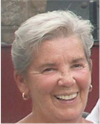
Biography:
Georgann V Weissman completed her DNP from Case Western Reserve University and has a Post Master’s Certificate as a Geriatric Nurse Practitioner from Binghamton University. She has combined academia with clinical practice focusing primary care on the elder adult and their needs at the end of life. She is presently a part time faculty at Capella University.
Abstract:
It is vital that a curriculum provides nursing students with the skills and confidence to meet the health care needs of society. Clear communication is an essential skill for all nurses and some areas of communication are more challenging for both students and educators. Communication regarding end of life (EOL) is perhaps the most challenging because of our death-denying culture and discomfort with this topic. There is one curriculum, The End of Life Nursing Education Consortium (ELNEC), studied at the graduate level; however, this program has not been implemented at the associate degree level. ELNEC is comprised of nine teaching modules that enhance knowledge, attitudes, and skills by using the cognitive, affective, and psychomotor domains of learning. This study is focused on the sixth teaching module: communication. Employing a pretest, post-test quasi-experimental design this researcher planned didactic content related to EOL to two groups of first year nursing students. Both groups used a common nursing curriculum at two demographically separate campuses of the same university. The intervention group also received the ELNEC communication module. Tools used for collecting information focused on any change(s) in self-efficacy and/or attitudes. Each participant completed the Visual Analog Scale (measuring self-efficacy) pretest and posttest intervention, as well as the from melt Attitudes Toward Care of the Dying Scale. The results of this pilot study provided positive outcomes similar to studies completed with the ELNEC curriculum at the graduate level. It also added the measure of self-efficacy in communication with the dying patient, which is new to the research in this area.
Julia A Greenawalt
Indiana University of Pennsylvania, USA
Title: The infusion of meaningful use into a nursing course and its relevance to palliative care
Time : 12:30 - 12:55

Biography:
Julia A Greenawalt is a full-time, tenure track faculty member in the Department of Nursing and Allied Health Professions, College of Health and Human Services at Indiana University of Pennsylvania, where she teaches maternity and ethics to undergraduate nursing students. She was the recipient of the 2011 Excellence in Academic Setting Integration of Simulation, sponsored from INACSL, and is a current member of the cohort for Leadership Development Program for Simulation Educators sponsored by the NLN. She currently is serving on the Research Committee for IMSH and INACSL. Her research efforts focus on infusion of meaningful use into academia and curriculum.
Abstract:
Teaching documentation skills and concepts to the emerging professional is a new challenge for nurse educators as the infusion of meaningful use is implemented within nursing’s affiliating agencies. Discipline mandates and accreditation requirements expect the emerging professional to be current in technology and communication as one prepares to care for patients in contemporary times. The purpose of this instructional opportunity was to examine issues contributing to the successful learning of electronic documentation within an undergraduate nursing course in western Pennsylvania. This presentation will address one approach to infusing documentation skills into an obstetrical clinical experience, share lessons learned, and discuss gaps that have been revealed in the teaching learning of meaningful use into higher education. Current inquiry and future research into evidence-based practice is needed as preparation gears toward workforce ready graduates who will be skilled and adept at documentation using current technologies. Teaching skills for information systems, particularly the electronic health record requires identification of challenges and obstacles which can be surmounted if academy and corporate culture work in tandem.
Lisa Gallagher
Cleveland Clinic Arts and Medicine Institute, USA
Title: The effects of music therapy interventions on symptom management in palliative medicine patients
Time : 13:55 - 14:20

Biography:
Lisa Gallagher, MA, MT-BC is the Manager, Music Therapy for the Arts and Medicine Institute at Cleveland Clinic. She is an administrator, clinical music therapist, author, and researcher. She is a frequent presenter at local, national, and international levels, and she has published several articles and book chapters. In addition, she is the recipient of the 2007 Great Lakes Region of the American Music Therapy Association Scholarly Activity Award, the 2008 Blair L. Sadler International Healing Arts Award, and the 2013 Association for Ohio Music Therapists Past Presidents Club Award. She is the former Chair of the Certification Board for Music Therapists’ Board of Directors, and she currently is the immediate Past President of the Great Lakes Region of the American Music Therapy Association.
Abstract:
The purpose of this study was to understand the impact of music therapy sessions on pain, anxiety, shortness of breath, depression, and mood; to identify specific interventions that are effective and common in addressing these symptoms; and to investigate the effects of gender, age, and type of cancer in patients with pain and anxiety who experienced music therapy. This was a retrospective study of data obtained over an almost 12 year timespan. A total of 5,970 records were included in the database representing 1,570 patients. The data file utilized for this study represented 547 patients whose initial music therapy sessions contained documentation of at least one variable. Among the 547 patients, 293 had complete data on all outcomes measures and were included in the data analysis. This study demonstrated the importance of music therapy for addressing symptoms and behaviors of palliative medicine patients. There was a positive and statistically and/or clinically significant effect on pain, anxiety, depression, shortness of breath, mood, facial expression, and verbalization. Commonalities regarding which interventions were most commonly used to address each symptom; as well as trends as to which interventions were most effective in addressing these symptoms were identified. Results also include connections between the effect on change in each of the variables as compared with age, gender, diagnosis, goals, and interventions.
Dawn Peleikis
Akershus University Hospital, Norway
Title: Effectiveness of one year pharmacotherapy of adults with attention-deficit hyperactivity disorder (ADHD): An open-label prospective study of treatment time, dose, side-effects and comorbidity
Time : 14:20 - 14:45

Biography:
Dawn Peleikis in 1994, started as a resident in psychiatry. She became an authorized psychiatrist in 1999. She completed her education in psychotherapy at the Norwegian Institute of Psychotherapy. In 2000-2004, she did her PhD work and her dissertation was on “Women who were sexually abused as children: Aspects and functioning after therapy”. From 2005 she worked both on clinical and research associated to Department of Research and Development, Department of Psychiatry, Akershus University Hospital. Her topics of research have been: trauma/PTSD, Schizophrenia and ADHD. She was the main supervisor in the PhD work of MD Fredriksen and is doing effectiveness study on adult ADHD-patients.
Abstract:
The aim of this study was to examine clinical relevance of long-term medication of adult ADHD. Electronic databases reviewed for original studies of long-term pharmacotherapy suggested that medication leads to less symptoms and higher functional outcomes compared to non-treatment and was well tolerated. However, the literature was scarce and had limitations in generalizing the outcome to the ADHD patients in general. The original studies of the thesis were conducted on 250 medication-naïve adult ADHD-patients at a specialized outpatient clinic. Higher levels of childhood hyperactive-impulsive symptoms and overall severity of ADHD-symptoms were associated with educational failure. Persisting inattentive symptoms and co-morbid mental disorders in adulthood were related to long term work disability. In the observational prospective part of the clinical study patients were treated with current ADHD-medication. At 12-months follow-up 232 patients completed examination, and 70% persisted on medication. Sustained improvement of symptoms and functioning were related to continued medication. Co-morbid mental disorders and side-effects were related to lower effectiveness and adherence. Hyperactive-impulsive ADHD-symptoms and severity of ADHD-symptoms in childhood was related to not having completed secondary school. Sustained attention difficulties in adulthood and comorbidity of psychiatric disorders were related to long-term work incapacity. Maintained use of ADHD medications was associated with significant reduction of ADHD-symptoms, improvement in general functioning and psychological symptoms. No serious adverse events were recorded.
Mary Goggin
St. George’s University Hospitals, UK
Title: The tension between the desire to sustain life and the acceptance of death
Time : 14:45 - 15:10

Biography:
Mary Goggin works as a Practice Educator at St. George’s University Hospitals, NHS Foundation Trust in London, UK. She has lead responsibility for the training and continuing education of staff new to specialty. She has devised a university Work Based Learning programme to ensure consistency in knowledge and clinical standards. Areas of research include the impact of continuing professional knowledge and competence and loss of a twin. She completed her PhD from University of Brighton. She has presented national and international conferences and is a reviewer of reputed journals.
Abstract:
Palliative care for (fetus, neonate or infant) with life threatening conditions is an active and total approach to care, from the point of diagnosis or recognition, throughout the child’s life, death and beyond. It embraces the physical, emotional, social and spiritual elements and focuses on the enhancement of quality of life for the (neonatal infant) and support for the family. It includes the management of the distressing symptoms (provision of short breaks) and care through death and bereavement. Palliative care requires a holistic approach by the multidisciplinary team who care for the neonate and his/her family. Palliative care planning involves professionals from midwifery, fetal medicine, obstetric, neonatal, community and children’s hospice service, and families. Care provision may vary up until the end of life and there may be transition into and out of active supportive and end of life care. The transition from active care for the neonate to palliative care involves an emotional journey for parents and family. The focus of this talk is on the resultant tension between the desire for life and the acceptance of death. Where death occurs within a short time frame there may be little time for parents to process the events and the accompanying emotional journey. Parents require time to process the events, the death of their baby and the assimilation of the new reality. Bereavement follow-up and counselling support need to be timed to coincide with the parents’ requirements.
Christos Stefanou
Athens University, Greece
Title: The Rising Role of Electrical Muscle Stimulation in Acute Disease and Rehabilitation Established applications and Research
Time : 15:10 - 15:35

Biography:
Christos Stefanou has completed his MD degree in Athens, Greece; trained in Internal Medicine in the USA and Cyprus; and completed his fellowship of Intensive Care in Greece. He is a doctorale candidate and a researcher, studying the beneficial and regenerative effects of Electrical Muscle Stimulation in ICU. He is currently an ICU attending of Limassol General Hospital of Cyprus.
Abstract:
Electrical muscle stimulation (EMS) is an alternative form of exercise for individuals who cannot fully participate in physical therapy. Furthermore, there are numerous sequels that derive directly or indirectly from stimulating muscle tissue. These may be local or systematic, involving all body systems; yet related present knowledge is in its infancy –even in the case of exercise, about which much more is known. EMS exerts pleotropic effects and emerges as a basic, indispensable treatment modality in several fields of medicine for highly morbid conditions, such as, sarcopenia, venous thrombosis, pressure ulcers, pelvic floor dysfunction, or muscle re-education. Technical parameters of the application define the outcomes. There has been recent attention to the regenerative effects of EMS, which are of axial importance to people who suffer from acute or chronic diseases or conditions. Regeneration may be evidenced through the release of anabolic factors or mobilization of progenitor cells. Six FDA- approved general areas of the application and many more, increasingly supported in literature, are reviewed; and own research is presented, focusing on progenitor cell mobilization and safety.
Soyannwo O A
University College Hospital, Nigeria
Title: Palliative care: Supporting adult cancer patients in Ibadan, Nigeria
Time : 15:35 - 16:00

Biography:
Soyannwo O A is a Professor of anaestheisa and Consultant anaesthetist. She obtained the MBSS degree from University of Ibadan, Medical school in 1971, She had her Post-graduate specialist training at the University College Hospital, Ibadan, Royal College of Surgeons, London, Royal Liverpool Hospital, Great Ormond Street Hospital for Children, London, Walton Centre for Neurology and Neurosurgery, Liverpool Marie Curie Centre (Hospice), End of life Observatory Lancaster University and Hospice Africa, Uganda. She rose through the academic ladder and was promoted to Professor in 1998. Her areas of scientific research interest include pain and palliative care, paediatrics anaesthesia and manpower development. She has published over 100 scientific articles and supervised several postgraduate students. She is currently the leader of the Ibadan Hospice and palliative care group bringing relief and succour to adults and children with chronic illnesses including end of life care and support for their families. She has received several awards including the honorary Fellowship (the highest award) of the international Association for the study of Pain for her immense contributions to pain management, education and research in Africa.
Abstract:
Introduction: Over 70% of adult cancer patients present late to hospital in Nigeria with devastating consequences. Yet, structured palliative care is only an emerging service in this country with population of over 160 million. Objective: To describe activities of the Ibadan palliative care group and review one year holistic care programme offered by the team to support patients and their families. Methodology: A retrospective study reviewed treatment notes of patients that were enrolled from January to December 2013. Information retrieved included bio-data, stage of cancer, presenting complaints, palliative care issues identified, services rendered, days on programme, outcome and challenges. Results: Structured palliative care service consisting hospital based care, day care and home based care commenced in 2008, being the first of such in Nigeria. The service was based at the University College Hospital, Ibadan and run in collaboration with Centre for Palliative care Nigeria, a non-governmental organization. 189 patients were seen within the year and 121 (64 %) were adults with advanced cancer. There were 44 (36.4%) male and 77 (63.6%) female with age range 21 to 91 years. 89 (73.6%) had moderate to severe pain. Psychosocial issues were present in 51.2% and spiritual issues in 17.4%. Services that were offered despite major challenges of late referral and financial constraints provided pain and symptom control, counselling, education for patients and family, financial and spiritual support thus improving quality of life Conclusion: Patients and their families found that palliative care provided relief to pain and suffering. More can be achieved through training of more health professionals, increased public awareness of the services and government support.
Beatrice Matandiko Zulu
General Nursing Council of Zambia, Zambia
Title: Effectiveness of palliative health care services for women and men in the client population
Time : 16:20 - 16:45

Biography:
The major causes of inequality in the health care systems are gender differences and inequalities because women and men play different roles in society. For example, in addition to the different gender specific diseases, women often have less direct access to resources and are often less able than men to take measures to protect themselves against certain diseases (ADBG 2009). The difference in roles played by men and women also impact who takes care of the sick and the elderly at home or in health facilities. Available evidence shows that women wait longer than men to seek medical care partly due to their unwillingness to disrupt household functioning until they become incapacitated. Therefore, gender disparities in the use of health services, health status and access and in health outcomes persist, signifying a need to address gender inequality in palliative health care services. The purpose of the desktop review is to provide the health sector evidence to facilitate effective analysis and identification of the gender issues in the provision of palliative care services and for effective gender analysis and mainstreaming in palliative care service provision. The results should be helpful to demonstrate good practices in mainstreaming gender in palliative care. One of the principles of palliative care is that it is applicable early in the course of illness, in conjunction with other therapies intended to prolong life (ARVs, chemo-radiation) and investigations needed to better understand and manage distressing clinical complications (WHO, 2002). Presently, in Zambia, palliative care services are offered to cancer patients.
Abstract:
Beatrice Matandiko Zulu, GNC Education and Training Manager, coordinates nursing and midwifery education and training programmes and ensure integration of core competencies into nursing curricula. Prior to joining GNC, she was Principal Tutor for Lusaka School of Midwifery and later briefly as Nursing Education Manager for Lusaka schools of nursing and midwifery. She received both her Master in Gender and BSc degree from the University of Zambia. She was a co-investigator in a research paper that was published in the International Journal of Nursing Education Scholarship manuscript 2379 in 2012.
Justin N Baker
St. Jude Children’s Research Hospital, USA
Title: Rescuing KR 1 and 2 Harnessing hospital and community hospice interdisciplinary care team resources to improve quality of care and quality of life for a complex patient
Time : 16:45 - 17:10
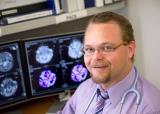
Biography:
Justin N Baker is a pediatric oncologist, palliative care physician, member of the ethics committee and Phase I and end-of-life care clinical investigator at St. Jude Children’s Research Hospital. He currently serves as the Chief of the Division of Quality of Life and Palliative Care at St. Jude as well as the Medical Director of the Quality of Life Service – the St. Jude palliative care team. He also serves as the Director of the Pediatric Hematology/Oncology fellowship program. His research interests include ethical considerations surrounding enrollment in Phase I clinical trials, AYA palliative oncology care, end-of-life decision making, integrating palliative care into the ongoing care of children with cancer as well as pain and symptom control in the context of pediatric oncology care. He has participated in more than 25 studies related to pediatric palliative care and has authored numerous manuscripts and book chapters on the topics ethical decision making as well as other palliative care subjects within the context of pediatric oncology.
Abstract:
Introduction: Interdisciplinary care teams are an essential part of quality care and communication in the delivery of both hospital and home based palliative care services. Optimal care coordination utilizes the collective expertise of care providers across disciplines and care settings to meet the physical, social, emotional and spiritual needs of their patients. One year ago we began the QoLA Kids (Quality of Life for all Kids) program; a home based palliative care and hospice bridge program formed as a collaborative effort of St Jude Children’s Research Hospital, LeBonhuer Children’s Hospital and Methodist Hospice. Biweekly interdisciplinary care team meetings bring together doctors, nurses, social workers, chaplains, child life specialists, and others, to enhance communication and quality of care for enrolled patients. The program has enabled the provision of essential care and resource utilization at a level that were previously unattainable. Case Report: KR is a 16 year old boy with perinatal HIV, developmental delay and progressive metastatic lyomyosarcoma with chronic issues of pain and failure to thrive. KR has been in the custody of his maternal aunt since the death of his mother and has had issues with poverty, recurrent homelessness, school truancy, and medical neglect. The palliative care team was consulted to augment the support of hospital based services and enrolled in the newly formed QoLA Kids program. Home visits by care providers across disciplines revealed an extremely unsafe environment, narcotic diversion with untreated pain, neglect of basic care including enteral feeds, medication non-compliance, and patient anxiety and emotional distress leading to self-mutilation. Through interdisciplinary expertise and communication, the team was able to address the identified deficiencies in KR’s care and improve both his safety and quality of life in ways that would have not been possible without the QoLA Kids program. Case report Part 2: He was followed on the program for over a year during which time he and his family required intensive psychosocial and medical support. On a routine home hospice visit, he was found to be unresponsive and brought to the local emergency room at LBH. Rapid communication between the QOLA hospice nurses, palliative care teams at both hospitals, and KR’s legal guardian allowed the team to clarify goals of care leading to revocation of the previously signed DNR/DNI. KR was intubated and aggressively treated for presumed reversible causes. Following acute care treatment at both hospitals, he was transferred to the Methodist hospice residence for rehabilitation and while awaiting DCS custody decision. He fully recovered from his acute illness and was recently discharged from hospice given ongoing clinical improvement and stabilization of his chaotic social situation. Discussion: The case of KR illustrates how interdisciplinary care across care settings can dramatically improve quality of care and quality of life for complex patients.
Lisa Gallagher
Cleveland Clinic Arts and Medicine Institute, USA
Title: Surveys of families of hospice and palliative medicine patients who experienced music therapy
Time : 17:10 - 17:35

Biography:
Lisa Gallagher, MA, MT-BC is the Manager, Music Therapy for the Arts and Medicine Institute at Cleveland Clinic. She is an administrator, clinical music therapist, author, and researcher. She is a frequent presenter at local, national, and international levels, and she has published several articles and book chapters. In addition, she is the recipient of the 2007 Great Lakes Region of the American Music Therapy Association Scholarly Activity Award, the 2008 Blair L. Sadler International Healing Arts Award, and the 2013 Association for Ohio Music Therapists Past Presidents Club Award. She is the former Chair of the Certification Board for Music Therapists’ Board of Directors, and she currently is the immediate Past President of the Great Lakes Region of the American Music Therapy Association.
Abstract:
Music therapy is effective in aiding in symptom management and quality of life for palliative medicine and hospice patients. Most studies have looked at patients, while only a few addressed the needs of family members. The purpose of this study was to understand family members’ perceptions of music therapy when they had a relative in palliative medicine or hospice. Quantitative results are combined with qualitative comments and reactions. Data was available on 50 participants. Patients scored their symptoms (pain, anxiety, depression, shortness of breath, mood) before and after music therapy sessions. One family member who was present during the session was asked to assess the effect on the patient’s pain, anxiety, depression, shortness of breath, stress level, restlessness, comfort level, mood, quality of life; the effect on self for stress level, quality of life, and mood; the helpfulness of the music therapy session to the patient and to self; and if they would recommend the patient have another music therapy session. Results indicated that music therapy helped to improve patient symptoms and it helped family members to experience its effects and to perceive positive effects for the patient. This study is one of the first to investigate the effects of music therapy on family members, as well as their perception of the effects of music therapy on their loved. Although this will be an important addition to the literature, it is recommended that more research should be conducted on the benefit of music therapy for family members.
Kathleen Jablonski
University of St. Catherine, USA
Title: New models of care: Using storytelling as a way to better understand cancer survivor's needs
Time : 17:35 - 18:00

Biography:
Kathleen Jablonski will complete her Doctorate of Nursing Practice in Transcultural Leadership from Augsburg College in May 2015. She is a Professor of Nursing at the University of St. Catherine in St. Paul, MN and practices oncology as a Clinical Nurse Specialist at Optum Health. Her lifelong work with cancer patients and cancer surivors has been presented in a variety of forums from survivor support groups to national organizations.
Abstract:
The reality of oncologic illnesses obliges those of us in healthcare to consider the paradox of living life while preparing for death or conversely living when the struggles make the thought of death come as a welcomed guest. It is within this chaos of illness where the rhythm of the universe lies. This is the state of the sacred that leads to an expanding awareness of healing and wholeness. The patient and the healthcare practitioner join in a story of each other—we become parts of each other’s story. By fostering the richness and depth of stories and by looking beyond the lens of nursing and medicine this project uses storytelling to form a picture of how the needs, and ultimately the decisions the individual makes, shape the patterns of the group. Likewise, story telling is a way to learn of the "problematics" that too often go "un-narrated. When we begin to hear through the filter of cultural conformity and the social structures which embrace—or constrain—the person living with cancer we create new ways of healing. This project explores the emic wisdom of the storyteller and can be used in practice and in teaching. Acknowledging that when one steps beyond the boundaries of our profession we can explore the needs of populations more fully. In practice, it is a therapeutic model to create a sacred space to heal. As a teaching model it is used as a foundation to educate students about all ways of knowing.

